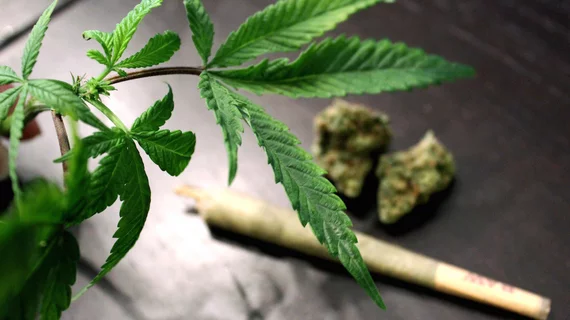Cannabis linked to double the risk of ketoacidosis in T1D
Cannabis use is associated with double the risk of diabetic ketoacidosis among patients with type 1 diabetes, according to a research letter published Nov. 5 in JAMA Internal Medicine.
Adults who were seen over a several-month period at the Barbara Davis Center for Diabetes, the largest type 1 diabetes treatment center in marijuana-friendly Colorado, were invited to complete a questionnaire about their cannabis use and diabetes history.
Any cannabis use in the previous 12 months was associated with 1.98-fold odds of hospitalization for diabetic ketoacidosis, reported lead author Halis K. Akturk, MD, with the University of Colorado Anschutz Medical Campus, and colleagues. The analysis included 450 survey respondents, including 29.8 percent who reported cannabis use.
Cannabis users, on average, had higher A1c levels (8.4 percent versus 7.6 percent), with a mean 0.41 percent higher A1c after adjustment for insulin delivery method, income and age.
“Cannabinoids alter gut motility and cause hyperemesis, which may play a role in increased risk for (diabetic ketoacidosis) in T1D,” the authors wrote.
Another potential factor is cannabis users were less likely to use diabetes technology such as continuous glucose monitoring (45.5 percent versus 55.1 percent) and insulin pumps (50.7 percent versus 66.5 percent). Patients who used cannabis also tended to be younger, have lower income and educational levels and be more recently diagnosed with T1D.
The research was limited by its small sample size, single-center design and the fact that diabetes outcomes were self-reported.
“The possibility of unmeasured confounders, such as access to health care, cannot be excluded,” Akturk et al. wrote. “Further research is needed to confirm these findings and understand the effects and adverse consequences of cannabis use in patients with T1D.”

